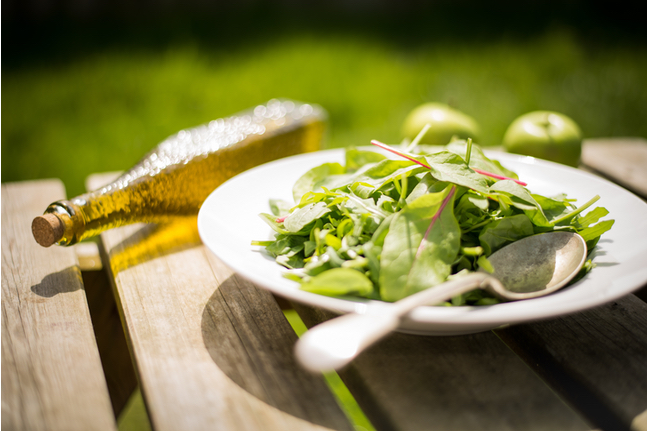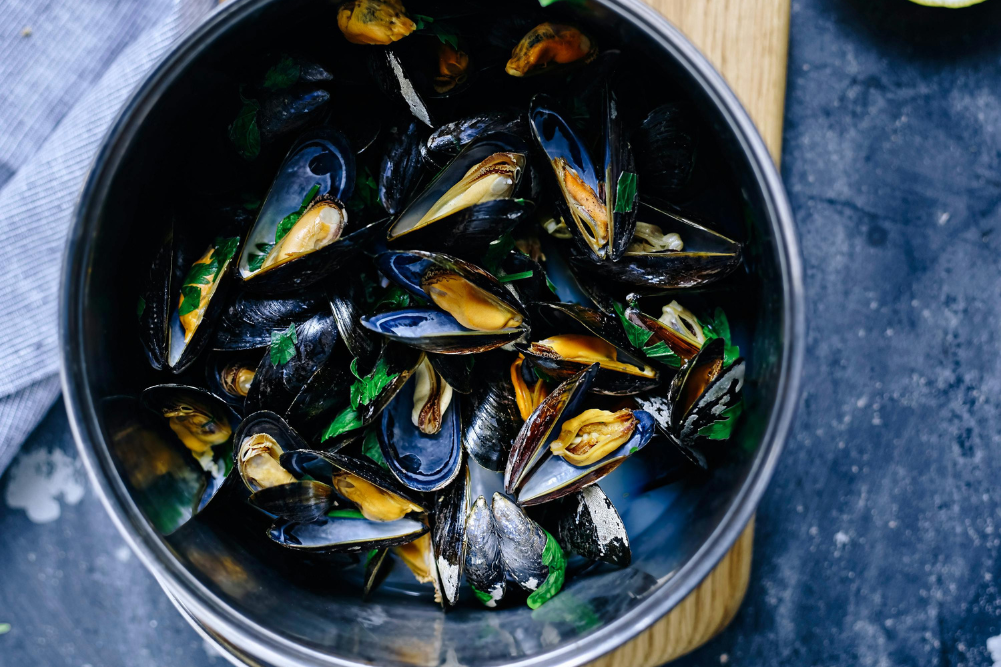How to eat your way to a longer life
Inflammation is the body’s natural response to injury, infections and illness. It plays a vital role in healing the body and protecting you from viruses and bacteria. Without an inflammatory response, wounds and damaged tissues wouldn’t heal.
The root of chronic disease
Inflammation should only be a temporary response that dissipates after the healing process is over. Sometimes, however, inflammation persists and becomes chronic. This is when it can do more harm than good. When inflammation becomes chronic it increases the risk of chronic disease. Scientists have also found a strong correlation between inflammation levels and a person’s lifespan.
Inflammation is said to be the root of almost all diseases, including cardiovascular disease, high blood pressure, type-2 diabetes, asthma, obesity, inflammatory bowel conditions, autoimmune diseases and leaky gut. According to a study published in TheLancet journal, low levels of inflammation in the body is a powerful predictor of longevity in people who live to more than 100 years.
Chronic, systemic low-grade inflammation often goes undetected in the body for years as it silently damages tissues in the body until disease sets in. It’s often only when signs and symptoms of disease appear that you become aware of it.
Chronic inflammation can be caused by a number of different factors including an overactive immune system (autoimmunity), an underlying infection the body is trying to fight or repetitive physical stress on a certain part of the body. Poor diet, long-term stress, food allergies and a sedentary lifestyle can all contribute to chronic inflammation in the body.
Eating for longevity
What you eat can have a big impact on how much inflammation you have in the body. Certain foods can either trigger or dampen inflammation. Eating a wholesome diet rich in anti-inflammatory foods and avoiding processed refined foods are of upmost importance for preventing inflammation, reducing the risk of chronic disease and promoting longevity.
Here are some top dietary and lifestyle tips for preventing inflammation and promoting longevity.
Lower inflammation with low-GI foods
Keeping your insulin levels low is a great way to prevent a build-up of inflammation. Eating refined sugary foods regularly will elevate glucose and insulin levels and will increase inflammation throughout the body.
Stock up on fresh fruits, vegetables, legumes, avocadoes, raw nuts and seeds, nut butters, tahini, quinoa, oily wild fish and healthy oils like olive, avocado, flaxseed and macadamia nut.
Some of the best ways to maintain low insulin levels is to exercise regularly and limit refined junk foods. Exercise is one of the best ways to normalise insulin levels and prevent insulin resistance. When insulin resistance occurs, the cells are unable to use insulin effectively to absorb glucose, so glucose starts to build up in the blood.
Other important ways to maintain healthy insulin levels are to avoid refined grains like white breads, rice and crackers, along with steering clear of processed foods that are rich in refined sugars like breakfast cereals, biscuits, cakes, muesli bars and soft drinks. Instead, eat nutritious unprocessed foods that have a low-glycaemic index, including unprocessed whole grains (whole oats, grainy bread, brown basmati, wild rice and buckwheat), most fruits (not fruit juice), vegetables, legumes, raw nuts and seeds (nut butters, tahini and quinoa), as well as wild fish.
Avoid processed foods
Processed foods contain high levels of highly inflammatory ingredients like refined oils (vegetable oils) and sugars (including high-fructose corn syrup) that will produce inflammatory compounds called cytokines in the body. Vegetable oils including corn, safflower, sunflower, soy and peanut oils oxidise quickly when heated and form trans-fats and aldehydes, which are highly inflammatory. These oils are also high in omega-6 fats. These fats are important in moderation, but are inflammatory when eaten in excess.
Eating a wholesome diet rich in anti-inflammatory foods and avoiding processed refined foods are of upmost importance for preventing inflammation, reducing the risk of chronic disease and promoting longevity.
One of the best ways to embrace an anti-inflammatory diet is to stop eating processed foods. Choosing to eat a diet rich in wholesome, natural, unprocessed foods that are full of antioxidants, phytochemicals and nutrients that are anti-inflammatory will help fight against inflammation and promote a longer life. Stock up on fresh fruits, vegetables, legumes, avocadoes, raw nuts and seeds, nut butters, tahini, quinoa, oily wild fish and healthy oils like olive, avocado, flaxseed and macadamia nut.
Moderate amounts of fructose from fruit is healthy, however it’s when people consume large amounts of refined fructose from processed foods that it can contribute to inflammation in the body and an increased risk of diseases like obesity, cancer, fatty liver, insulin resistance and type-2 diabetes.
Large epidemiological studies have shown strong health benefits of following a Mediterranean diet for reducing the risk of a number of chronic diseases including heart disease, and for increasing life expectancy. The Mediterranean diet’s health and longevity benefits are said to be due to its combination of mainly plant-based antioxidant- and anti-inflammatory-rich foods such as fresh fruits, vegetables, nuts, seeds, legumes, unprocessed grains and olive oil, along with oily fish and a low consumption of meats.
Eat the rainbow
Fruits and vegetables are rich in anti-inflammatory flavonoids, carotenoids and vitamin C. Berries (blueberries, raspberries, acai, strawberries and black berries), dark green leafy vegetables (kale, Swiss chard and spinach), beetroot, cherries, pomegranates, oranges, tomatoes, lemons, carrots, kiwi, papaya, broccoli, avocado and mangoes are all loaded with these important anti-inflammatory compounds. Pineapple also contains bromelain, which is an enzyme that helps reduce inflammation and aids digestion.
If you find it difficult to get your daily dose of vegetables, try having a veggie juice or a green smoothie to up your intake of green leaves. Some excellent inflammation-busting veggie juice combinations are carrot, beetroot, cucumber, apple, ginger, lemon and parsley.
Teas for longevity
Swap your morning coffee for a delicious cup of liquorice, ginger or chamomile tea. Herbalists have used these fabulous herbs for centuries due to their anti-inflammatory properties. Cinnamon and turmeric are also excellent anti-inflammatory botanicals that can be enjoyed in chai tea, or added to hot almond or coconut milk for a delicious anti-inflammatory latte. Studies have found that green and rosehip teas are also great choices as they help dampen inflammation throughout the body. Green tea’s anti-inflammatory action is due to its high levels of polyphenols called epigallocatechin gallate (EGCG).
Raw nuts and seeds
Turn your snacks, smoothies, breakfast cereals and salads into super anti-inflammatory meals by adding a handful of raw nuts and seeds such as walnuts, Brazil nuts, cashews, almonds, hazelnuts, chia seeds, hemp seeds, flax seeds, sunflower seeds or pepita/pumpkin seeds. Nuts and seeds provide beneficial unsaturated fats, including essential omega-3 fats (found in chia, flax and walnuts), vitamin E and zinc, which have anti-inflammatory actions. Nut butters and tahini (ground sesame seeds) are also delicious ways to enjoy these anti-inflammatory foods.
Optimise your gut health
A healthy balance of beneficial gut microbiome (bacteria) is important for supporting good gut health and for warding off gut inflammation. Problems with your microbiome can contribute to digestive system conditions such as irritable bowel syndrome and leaky gut, as well as even depression, arthritis and poor immunity. Including fermented foods like sauerkraut, kimchi and miso with meals is a great way to boost your beneficial gut bacteria. Taking a good-quality multi-strain probiotic supplement daily is also recommended to help maintain a healthy gut microbiome balance and to protect against inflammation.
Spice up your meals
Spice up your meals by adding fresh or ground ginger, turmeric and garlic, as well as curry powder, cinnamon and chilli. These well known anti-inflammatory herbs will not only add plenty of flavour to meals but they will also help fight inflammation.
Limit red meat
Eating too much red meat will promote inflammation in the body. Red meat and processed deli meats are pro-inflammatory foods. If you like to eat red meat, make sure it’s organic and grass-fed, as commercially grown meats are higher in inflammatory compounds. Try marinating your meat in olive oil and garlic, as this forms a protective coating on the meat that will help reduce the formation of inflammatory compounds when it’s cooked. Always cook your meat on a low-to-medium temperature and never burn it.
Important anti-inflammatory nutrients
There are a number of important vitamins and minerals that can help prevent inflammation in the body.
Vitamin A is an immune enhancer and anti-inflammatory nutrient that’s found in cod liver oil, orange and yellow fruits and vegetables, as well as green leafy veggies in the form of beta-carotene (which is converted to vitamin A in the body).
Zinc is another essential mineral required for healthy immune function and for its anti-inflammatory action. Zinc is found in fish, legumes, nuts and seeds.
Quercetin is a flavonoid known for its powerful antioxidant and anti-inflammatory effects. Good sources of quercetin include black grapes, raspberries, broccoli, kale, onions and apples.
Beneficial anti-inflammatory unsaturated fats found in oily fish, avocado, raw nuts and seeds (including their oils, tahini and nut butters), and extra-virgin olive oil are all anti-inflammatory foods that can help soothe an inflamed intestinal tract.
Vitamin E is another nutrient that has been found to have potent anti-inflammatoryaction. You will find vitamin E in avocadoes, olive oil, raw nuts and seeds, Atlantic salmon, trout and cod.
Oily fish are rich in beneficial omega-3 fats, so they make a fantastic addition to an anti-inflammatory diet. Alaskan wild salmon, trout, cod, mackerel and sardines are all good choices. Aim to have around three serves of oily, preferably wild fish a week. Tuna, especially canned tuna made from large tuna, is notoriously high in mercury, so this should only be an occasional fish in your diet. Taking a good-quality fish oil or krill oil supplement is also a great way to increase your anti-inflammatory omega-3 fats.
RECIPES FOR A LONG LIFE
Green tea smoothie
Start your day off right with this super green tea smoothie. It’s a great source of anti-inflammatory compounds including plenty of polyphenols, vitamin C and beta-carotene.
Makes 2 large glasses
=R1=
Rainbow rice paper rolls
These delicious rainbow rice paper rolls make a healthy lunch or appetiser for parties. This dish will deliver important anti-inflammatory nutrients including unsaturated fats, zinc, vitamin E and beta-carotene.
Makes 10 rice paper rolls
=R2=
Pineapple gacamole
Guacamole makes a particularly great anti-inflammatory snack with some veggie sticks or dehydrated veggie crackers. You will get plenty of vitamin E, beta-carotene and vitamin C in this dish.
Serves 4
=R3=
Zesty salmon and quinoa with mango and avocado salsa
This is a perfect dinner for anyone wanting to follow an anti-inflammatory diet. This dish is rich in beneficial omega-3 fats, vitamin E, beta-carotene and vitamin C.
Serves 4
=R4=








